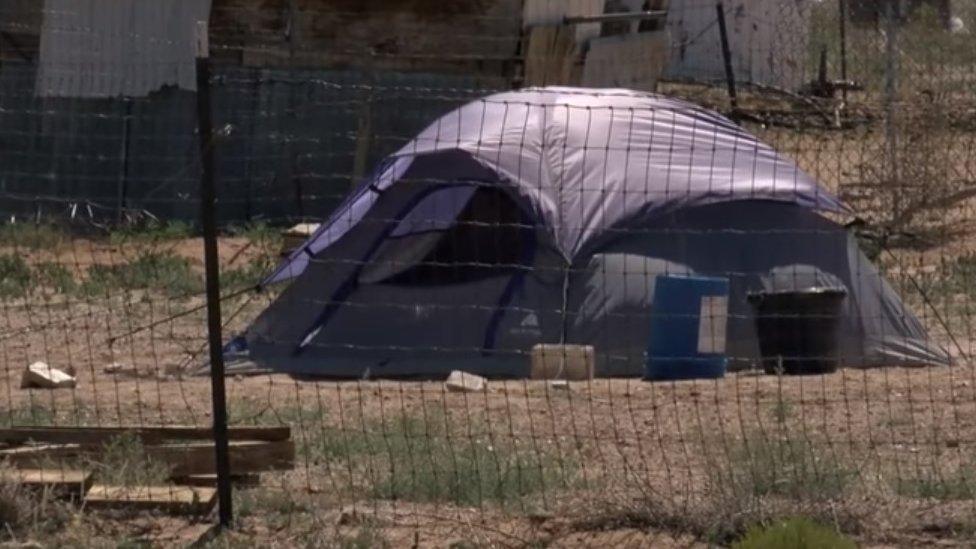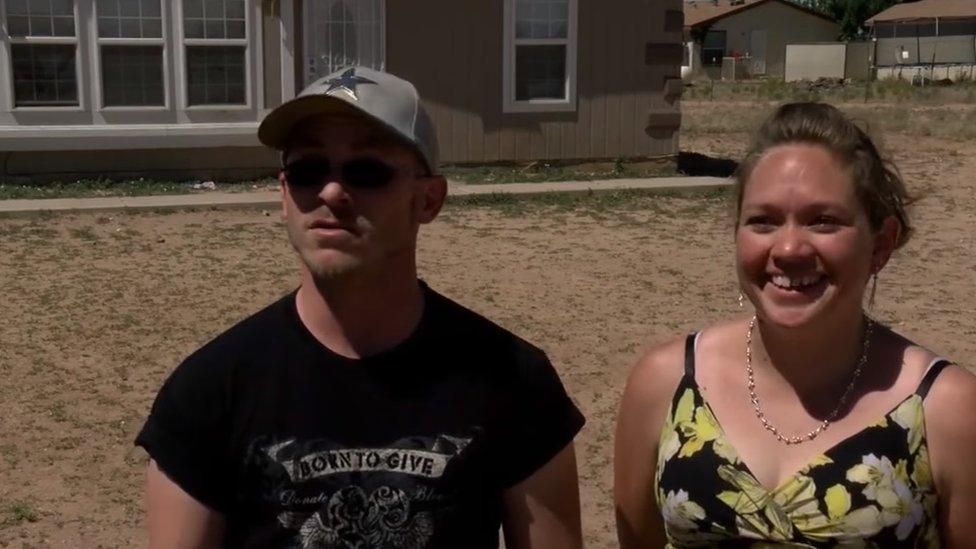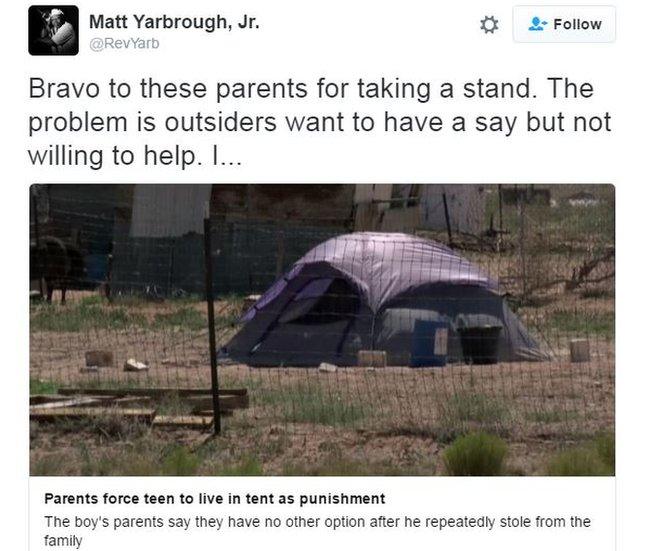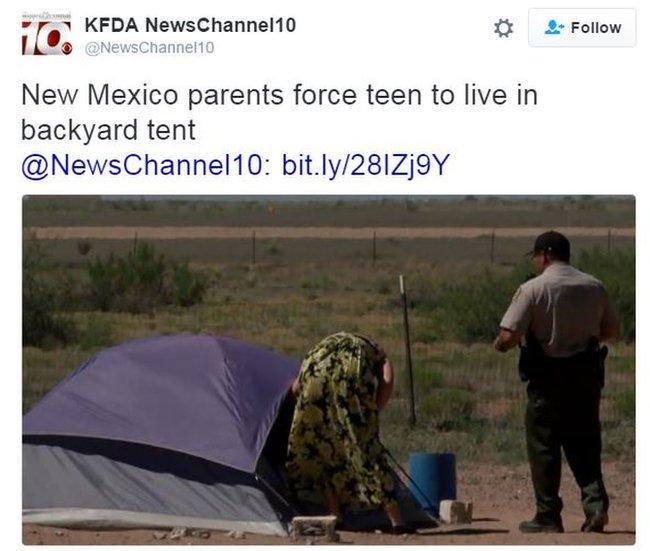Is it harsh to banish a wayward son to a tent?
- Published

The boy was given a choice to remain in the tent for a month or write five book reports
A New Mexico couple have sparked a public debate after punishing their teenage son for stealing by banishing him to live in a tent for a month. Is this good parenting or abuse?
The 16-year-old has been spending his days inside a tent for the past two weeks, according to local television station KRQE reports, external.
With access to food and water, use of a bathroom in the house and permission to return inside every night at 9pm to sleep, some view the punishment as merely a form of tough love.
"There is so much stealing going on. Kudos to the parents for trying to help this child. If more parents would step in, we wouldn't have so many young criminals in the area," commenter Jeanne Timmerman wrote in a Facebook post on the KRQE page.
But others criticised the punishment as too harsh.
Sweltering temperatures in Belen, New Mexico, where the family lives, have topped 38C (100F) in recent weeks.
"He can die in this heat, they should be arrested for neglect," Facebook user Kenneth Oldfield said in a comment online.
Some of the family's neighbours have alerted both the Valencia County Sheriff's Department and the New Mexico Children, Youth and Families Department.
But officials said they have been to the residence three times and found no signs of of child neglect, according to local media.
"If he doesn't learn that now, it's gonna be the whole world's problem, not just ours, in a couple of years," Jacob Boggus told KRQE.

The teenager's parents say they have run out of options in disciplining their son
Boggus and his wife Angela Boggus said they had exhausted all options before they resorted to the tent sentencing, but it's unclear what and how often the teenager was stealing.
"You're not looking at angry parents, you're looking at frustrated parents in a situation where they feel they have lost control," says parent educator and author Rosalind Wiseman.
"The most important thing is if you want to stop a pattern of behaviour, you have to figure out what is motivating the child," she added.
Once parents understand the motivation, Ms Wiseman explains, they can fit the discipline.
She says she believes the couple is trying to hold the teenager accountable while also disciplining him with respect.
What doesn't work, she adds, is publicly embarrassing or humiliating a child in the way in which they enforce a punishment.
A recent example might include the case of a Japanese boy who went missing for nearly a week after his parents abandoned him in a mountain forest as a form of punishment.
In 2011, a Florida mother forced her child to stand on a busy Tampa Bay street corner wearing a sign emblazoned with a message about his low GPA, external.

Twitter and Facebook users shared their support for the parents

Parenting expert and author John Duffy says the tent incident fits the description of humiliation discipline.
"I get where the parents are coming from", says Mr Duffy. "But this kind of punishment tends not to be very effective."
While he agrees the focus should be on the underlying motive for stealing, he says the idea is far too public for a punishment and could have longer term or more damaging effects.
In fact, he says the media coverage of the case could drive the teen to resent his parents, mark him as a target for online bullying or cause lasting psychological effects.
"I think their intentions are solid but the headlines it's created have a long-term effect they might not have anticipated," he says.

Authorities say they found no signs of child neglect
So what is an alternative option to the tent sentence?
Enlisting the help of a local police department and having an officer explain the consequences of stealing could be a more effective option, Mr Duffy says.
But authorities and public opinion remain largely in support of the family's decision.
"Kids can be terrible roommates," Wiseman says. "They haven't gone to a bad place, they're just trying to figure out what to do."
The parents, Angela and Jacob Boggus, said the teen will remain there for a month unless he writes five book reports, which they said will teach him respect.
"Anybody who wants to talk some sense into him is more than welcome," Jacob Boggus said. "We're not trying to hide from this."